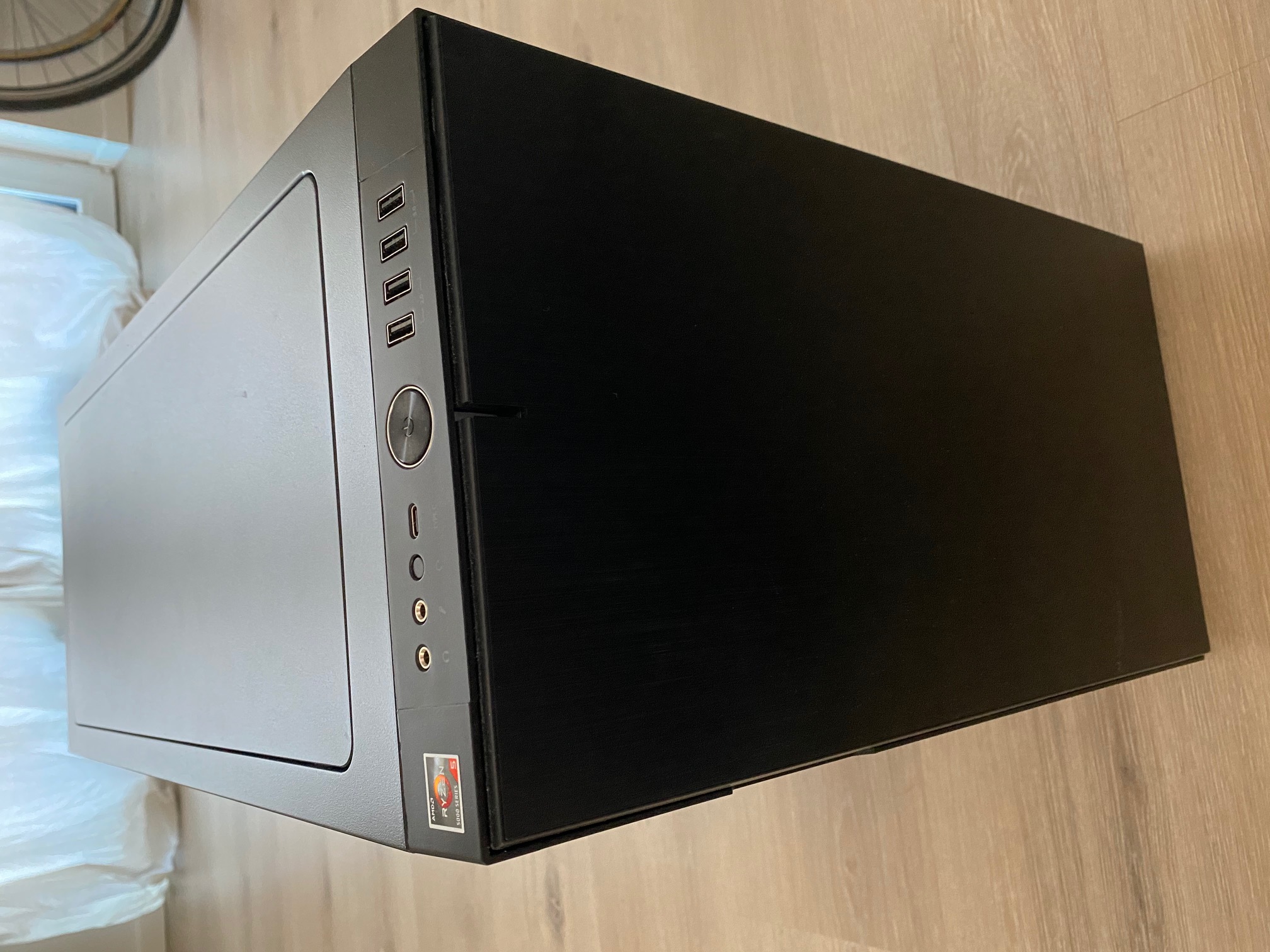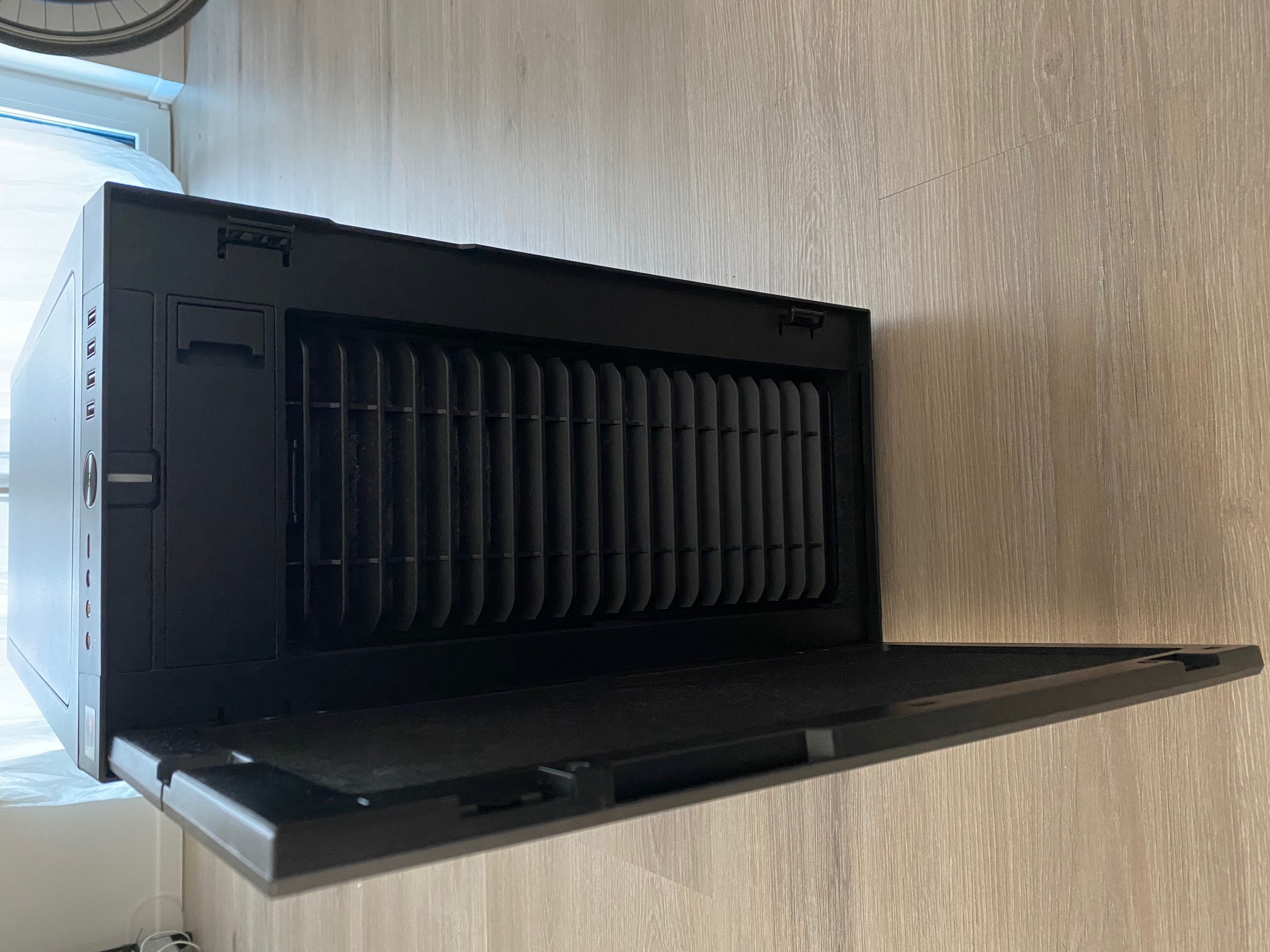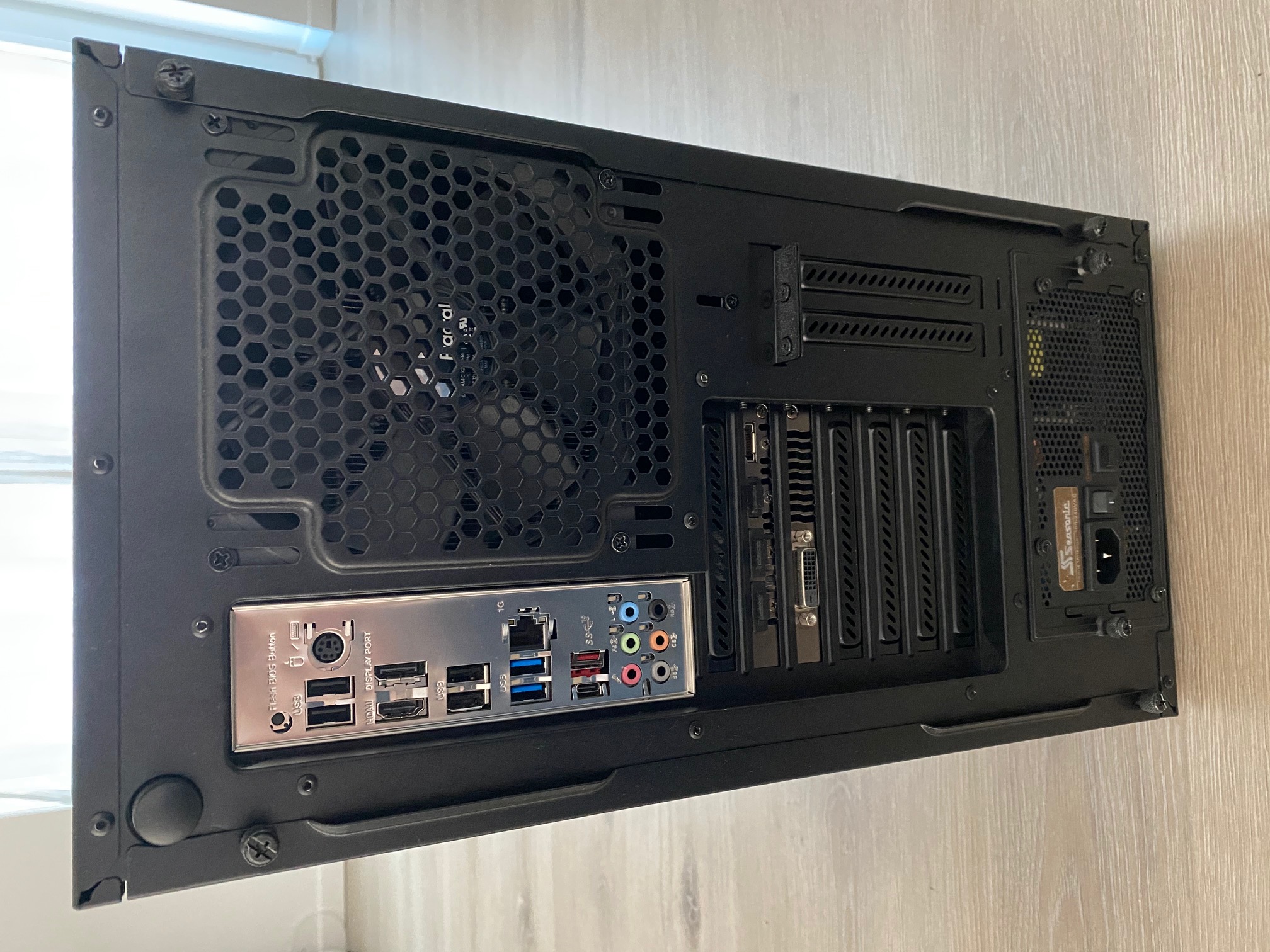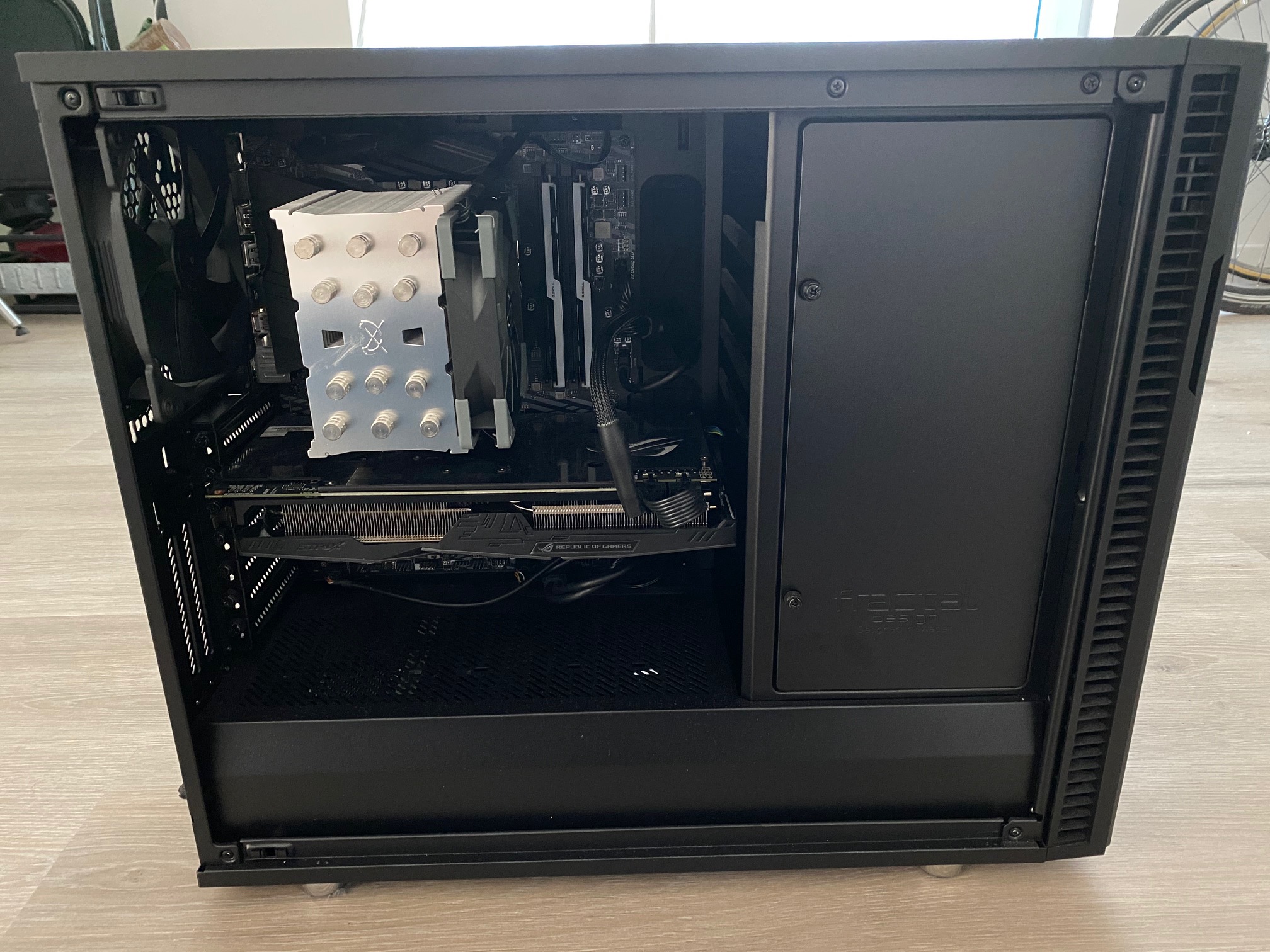New year, new PC - based on AMD Ryzen
After roughly 8 years it was time to upgrade my desktop computer. Even though I already upgraded the graphic card two times in the mean time, processor and memory resources reached their limits. Especially computing intensive tasks and newer video games were slowd down. Fortunately, things have changed a lot in the last 8 years so an upgrade looked promising.
I really appreciated AMDs big comeback with the Zen architecture introduction. Especially since Intel missing innovations and production problems I wanted to have an AMD system again for the next computer.
For the last PC, I decided to go for the Intel Xeon 1230 v3 CPU - an insider tip back then: cheaper than a comparable i7 and also more efficient due to the missing iGPU. TDP of 80 watts, 4 cores at 3.30-3.70 GHz and 8 MB cache - a pretty good combination.
Of course I wanted to find a good deal again this time. The brand-new Zen 3 architecture currently offers 6 processors that mainly focus the enthusiast or power segment (Ryzen 7 and Ryzen 9). But that's way beyond my requirements - I'm not a hardcore gamer, I'm not streaming and I'm also not cutting videos very often. I might be using VMs and containers pretty often - but htat won't justify 12 to 16 cores and 105 watts of TDP. 🙂
I decided to buy the Ryzen 5 5600X CPU - a good compromise between efficiency and performance:
| Intel Xeon 1230 v3 | AMD Ryzen 5 5600X | |
|---|---|---|
| Release date | Q2 2013 | Q4 2020 |
| Cores | 4 cores, 8 threads | 6 cores, 12 threads |
| Frequency | 3.30 GHz (3.70 GHz Turbo) | 3.70 GHz (4.6 GHz Turbo) |
| L3 cache | 8 MB | 32 MB |
| Production size | 22nm | 7nm |
| TDP | 80 watts | 65 watts |
| Memory | maximum of 32 GB DDR3-1600 (25.6 GB/s) | maximum of 128 GB DDR4-3200 (47,7 GB/s) |
| PCI bus | PCIe 3.0 | PCIe 4.0 |
Especially the bigger cache and memory bus in combination with the higher turbo boost looks promising. The newer PCIe 4.0 standard opens up new possibilities for NVMe storage.
I had a short look at CPU UserBenchmark that predicted an noticable increase:

Finally, I decided to go for the following components:
| Component | Vendor/Type | Price |
|---|---|---|
| Mainboard | MSI B550-A PRO | 131,90 € |
| CPU | AMD Ryzen 5 5600X | 339,00 € |
| CPU cooler | Scythe Mugen 5 Rev.B SCMG-5100 | 44,99 € |
| Memory | CMK32GX4M2B3200C16, Vengeance LPX | 121,90 € |
| Graphic card | AMD Radeon RX Vega 56 | already existed |
| SSD | Samsung 980 Pro 1 TB NVMe | 189,98 € |
| PSU | - | already existed |
| Case | Fractal Define R6 C Blackout | 130,99 € |




Total costs were roughly 960 Euros - more or less the like the former PC 8 years ago. The only parts I kept were the graphic card and the power supply.
Benchmarks
I ran some benchmarks to see how good the upgrade was. First, I've been using Geekbench 5.3.1:
| Test | Intel Xeon 1230 v3 | AMD Ryzen 5 5600X |
|---|---|---|
| Single-core | 983 | 1704 |
| Multi-core | 3519 | 8285 |
| Details | [click!] | [click!] |
I didn't want to run the well-known Phoronix Test Suite as it looked to complex to me - I didn't want to spend multiple days with benchmarking. I reduced my expectations to have some rough number to compare the systems - using sysbench:
| Test | Intel Xeon 1230 v3 | AMD Ryzen 5 5600X |
|---|---|---|
| CPU events/second | 1045 | 5244 |
| CPU avg latency | 0,96 | 0,19 |
| Memory speed | 6225 MB/s | 8307 MB/s |
I also did some IO tests and the results were impressive. The old computer had a Samsung Evo 840 SATA SSD that was sufficient for the most tasks.
The Samung 980 Pro is one of the first NVMe SSDs that already supports the PCIe 4.0 standard. I also did a comparison with my notebook's Samsung Evo 970 Plus NVMe SSD (PCIe 3.0) to have an overview about the overvalue of PCIe 4.0.
| Test | 840 Evo SATA | 980 Pro NVMe | 970 Evo Plus |
|---|---|---|---|
| hdparm -Tt | 535 MB/s | 2495 MB/s | 1890 MB/s |
| dd (16x, 64M block, dsync) | 218 MB/s | 1126 MB/s | 468 MB/s |
| dd (1000x, 512B block, dsync) | 42 KB/s | 81 KB/s | 132 KB/s |
All tests were ran 3 times to calculate an average.
The boot times of a fresh Pop!_OS installation were shortened from 9 seconds (970 Evo Plus, PCIe 3.0) to 6 seconds (980 Pro, PCIe 4.0). I did no tweaking. The easiest thing would be using systemd-analyze blame to find units that slow-down the start:
1# systemd-analyze blame
26.440s NetworkManager-wait-online.service
33.265s plymouth-quit-wait.service
41.720s fwupd.service
51.231s docker.service
6...
Finally I ran some browser benchmarks to quantify the "snappiness" of daily browsing. I was using Brave 1.18.70:
| Test | Intel Xeon 1230 v3 | AMD Ryzen 5 5600X |
|---|---|---|
| JetStream | 96.187 | 165.435 |
| MotionMark | 357.99 | 772.20 |
| Speedometer | 80.97 | 153.5 |
| Basemark Web 3.0 | 1230.55 | 2298.13 |
Conclusion
After 8 years it was totally worth upgrading! The new system runs way smoother - especially the signifcant enhanced memory speed and faster NVMe SSD accelerate the system heavily. Even running multiple VMs and containers in parallel won't slow down the system.